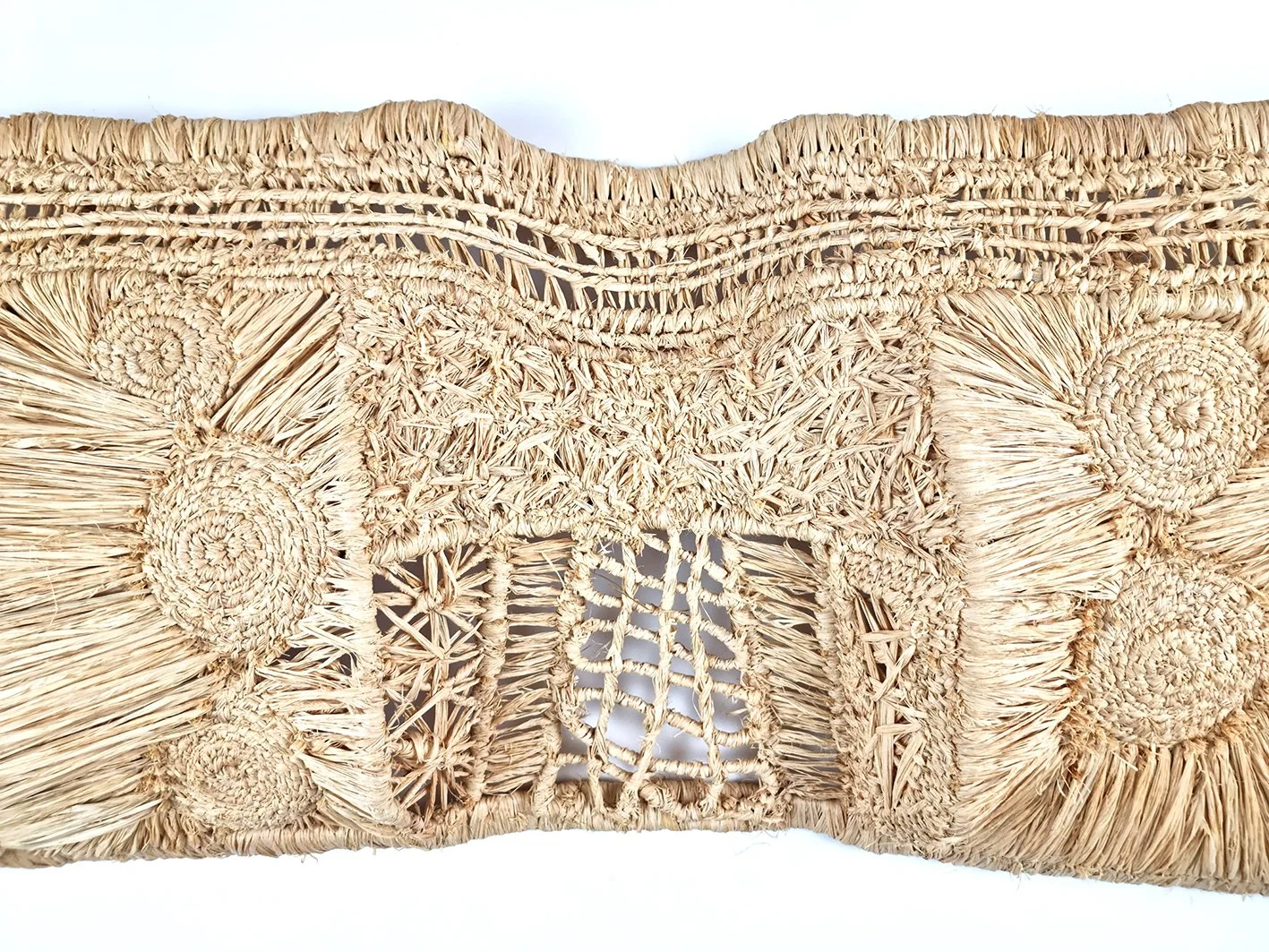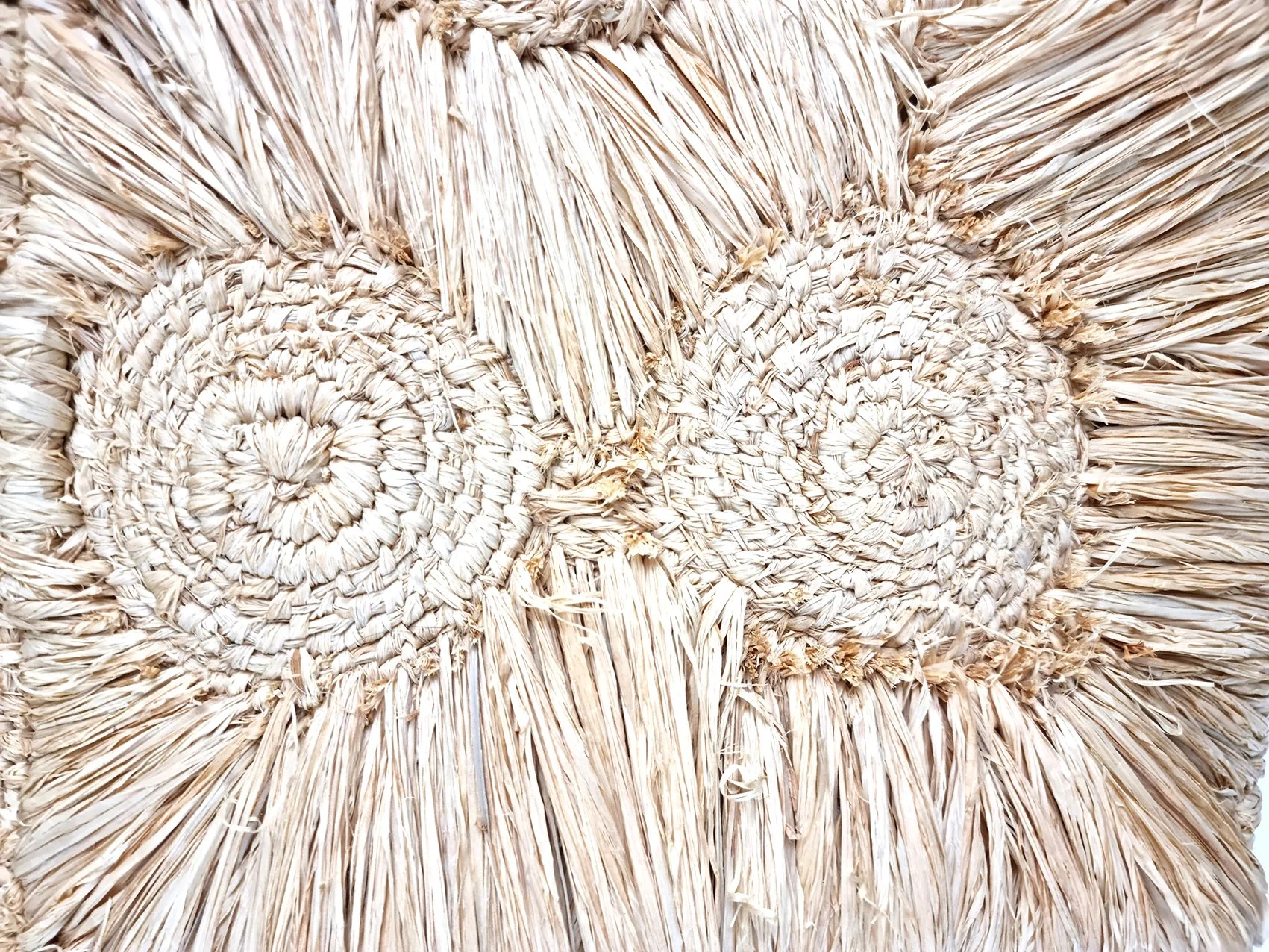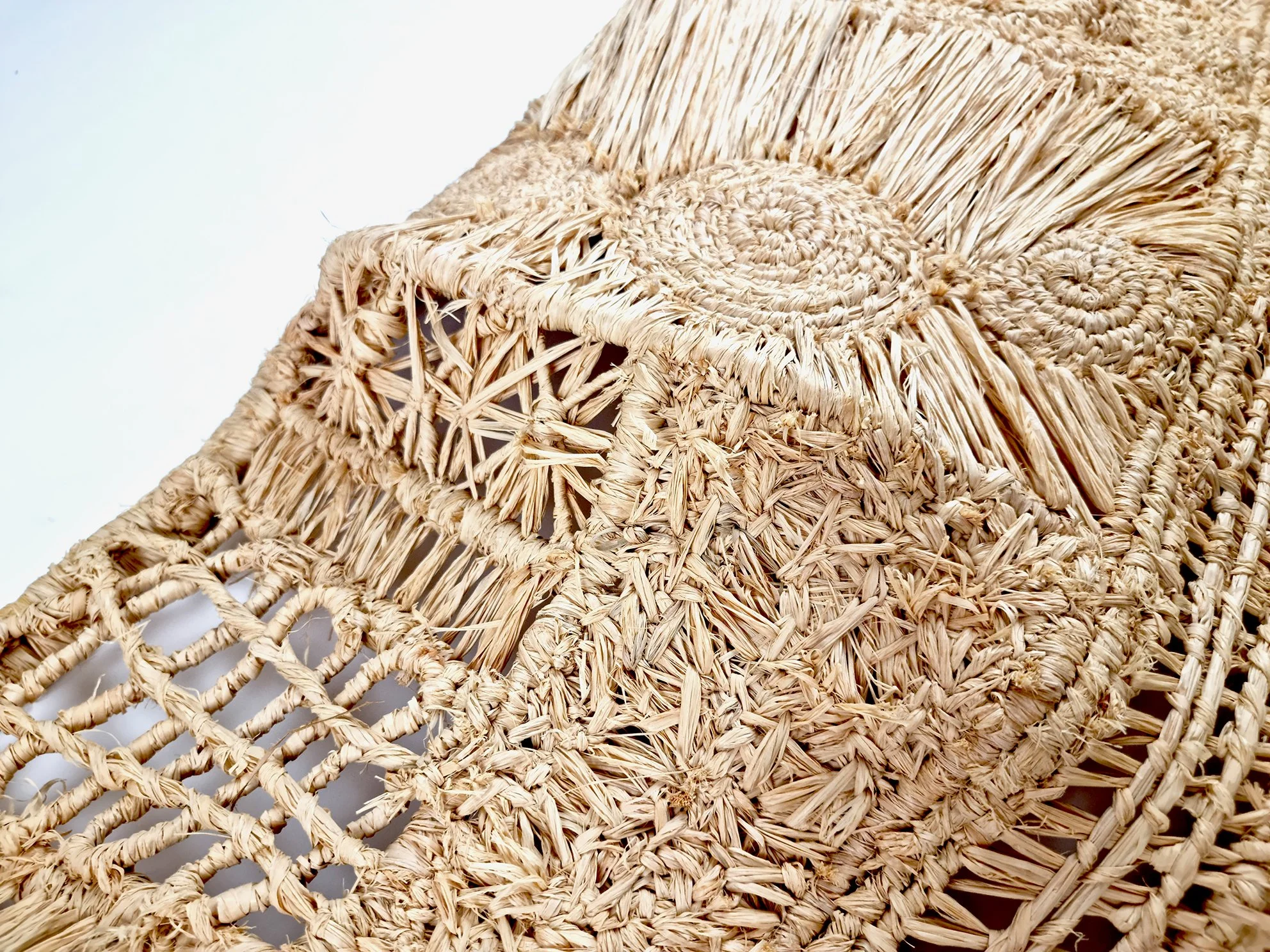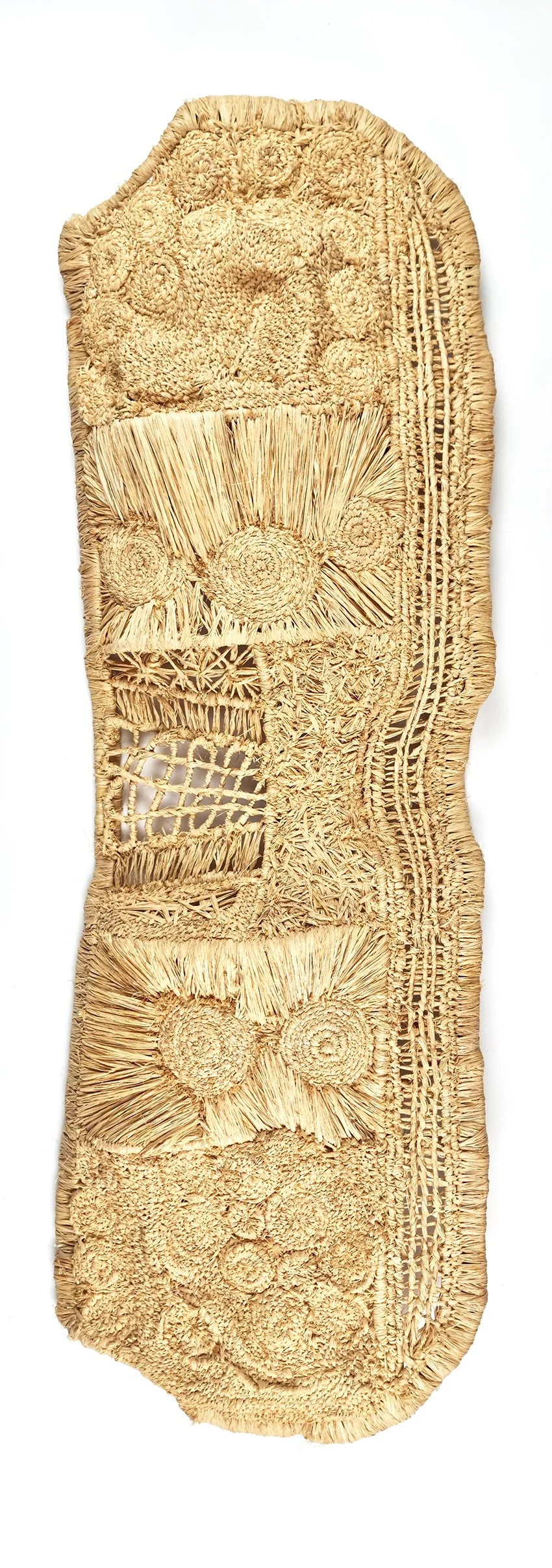Mrs M. Heffernan





Mrs M. Heffernan
Minyma Tjuta! – Many Women! #1736-23
Natural raffia, found metal car seat frames, L48cm x W13cm x H137cm, 2022
In Minyma Tjuta! Mrs Heffernan uses her sophisticated weaving skills to tell a story about herself and fellow central desert women. She celebrates Anangu minyma in their Country, and the rhythms and routines shared together on the land - singing, dancing, cooking, working, teaching the children. Through woven pattern, motifs and placement, it symbolises the captivating beauty of the bush, cultural practices and a deep connection to Country. Minyma Tjuta! features important natural landmarks such as rockholes, sandhills and maku trees, scattered across the works, as they are on the land. The works reflect the complex interconnectedness that flows between features across the landscape and the communities of minyma who live within it.
Freshly produced raffia is intricately woven across gaping, rusted metal frames salvaged from burnt out cars in community. The two contrasting mediums reflect the old and the new, the elderly and the young, the traditional and the contemporary, interwoven to create one collective story.
“I was thinking of making this story about women.
This is all the Tjanpi ladies doing Tjanpi work. Here you can see the ladies sitting down making Tjanpi... this is a maku tree, there’s another little one over there, and then another two over there. There’s the sandhills, and there’s some rockholes. There’s some children sitting down, there’s ladies collecting maku, there’s the red sandhill, there’s the other red round sandhill. There’s a big waterhole. This is all the women sitting down, singing. There’s all the lovely tjanpi, there’s all the ladies collecting tjanpi and doing their work.
I grew up in Ernabella but I was born in Alice Springs. This shows minyma from Ernabella, Wanarn, Fregon, Mimili... Minyma from Amata, Pipalyatjara... all those places, everywhere.
These are all things ladies do out bush – dance, cooking, singing, watching the children. Minyma Tjuta Tjanpi work... Minyma Tjuta collecting tjanpi... Going out for maku... Sitting near the sandhill, having a picnic, cooking kangaroo tail, maybe doing inma. This is a celebration of women everywhere.
This is a story about women, all the ladies, all those places ladies go out bush. Minyma Tjuta!” – Mrs Heffernan
Mrs Heffernan was born in Alice Springs in the building next to the Royal Flying Doctor service, in 1959. Her mum was Pitjantjatjara, from Pukatja (Ernabella), SA, and her dad was Eastern Arrernte, NT. Her mum's mother was from Kaltukatjara (Docker River), NT.
Mrs Heffernan grew up and aended primary school in Pukatja. She then moved to Mparntwe (Alice Springs) where she boarded at St Phillips and went to Alice Springs High School. Following her schooling years, Mrs Heffernan travelled to Adelaide, where she studied and received her teaching diploma. With this qualificaon in hand, she moved to Amata, SA, where she taught primary school children for 12 years. Mrs Heffernan married a man from Warburton, WA. They had one daughter, Joselyn who now lives in Warburton, and one foster daughter who lives in Alice with her son.
Mrs Heffernan started weaving in 2005, having learned basket-making skills from Nyukana Daisy Baker. She never felt interested in making sculptures or using wool, instead preferring to focus on ghtly woven, neat and oen perfectly rounded baskets. She enjoyed embellishing her baskets with inin seeds, emu feathers, and other types of natural materials in unique and interesng ways. Mrs Heffernan had a great eye for colour and detail. She also enjoyed making beanies, and exploring other forms of weaving.
Mrs Heffernan took part in facilitang many Tjanpi weaving workshops, oen alongside her close friend Margaret Smith. The two ladies loved to share stories and laughs with the parcipants, while paently teaching them how to weave a basket.
Mrs Heffernan wove Koskela light frames in recent years, soon transferring these frame-weaving skills to works on car seat frames, salvaged from burnt out cars in community. Before her unmely death, Mrs Heffernan completed two spectacular woven car frame artworks, which tell a symbolic story of NPY minyma (women) and their connecon to Country.
Tjanpi Desert Weavers (Tjanpi meaning ‘wild grass’) is an award-winning, Indigenous governed and directed social enterprise of the Ngaanyatjarra, Pitjantjatjara and Yankunytjatjara Women’s Council (NPYWC). Tjanpi empowers over 400 women across a 350 000 square km area of the tri-state region of NT, SA and WA to earn an income and remain in their communies on Country.
